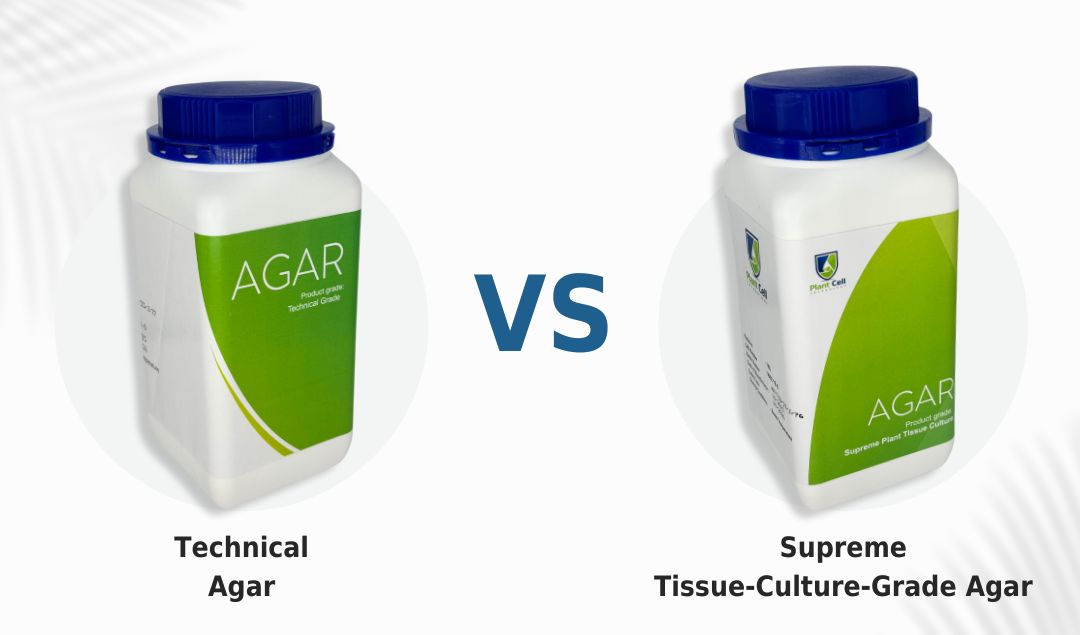
Synthetic Seeds: Definition and Applications
As a content and community manager, I leverage my expertise in plant biotechnology, passion for tissue culture, and writing skills to create compelling articles, simplifying intricate scientific concepts, and address your inquiries. As a dedicated science communicator, I strive to spark curiosity and foster a love for science in my audience.


Introduction
You must know natural seeds that are used to grow plants from scratch. They contain nutrients inside that a plant need to shoot out and start growing. They are highly heterozygous because of recombination and meiotic division. Thus, they lead to highly unpredictable and unstable agricultural yields.
The solution to the problem is synthetic seeds!
Synthetic seeds are artificial seeds which include encapsulated somatic embryos, shoot buds, cell aggregates, or any other meristematic tissue having potential to regrow after storage conditions.
Murashige was the first person to introduce the concept of artificial seeds. However, it was Kitto and Janick who first produced desiccated artificial carrot seeds. True artificial or synthetic seeds, by encapsulating somatic embryos of alfalfa in sodium alginate, were first produced by Redenbaugh et al in 1984.
The two types of synthetic seeds are:
- Desiccated Synthetic Seeds: This involves the encapsulation of multiple somatic embryos followed by desiccation. The encapsulating material used in this case is polyoxyethylene (Polyox). This material doesn’t allow for the growth of the microorganisms and is non-toxic to embryos.
- Hydrated Synthetic Seeds: This involves the encapsulation of a single somatic embryo in hydrogel capsules. This technique is used in those plants which are recalcitrant for the somatic embryogenesis and sensitive to desiccation.
The technique is extensively used in labs in diverse applications. However, it’s more exploited to produce artificial seeds for plants with seedless fruit, having low seed viability, and poor germination rates. Further, it’s also used for plants that depend on mycorrhizal–fungal symbiosis for their germination.
This article provides a brief overview of the synthetic seeds technology, including how it’s prepared, it’s advantages, and applications in diverse industries.
Types of Tissues Used to Prepare Synthetic Seeds
Synthetics seeds are mostly needed to improve the characteristics of new embryos, which makes them beneficial for storage for longer duration. Further, they also prevent the desiccation of somatic embryos or plant propagules in the natural environment.
Below are different types of tissues used to prepare synthetic seeds:
- Somatic Embryos: Somatic embryos are produced from somatic or vegetative cells that help to produce genetically identical plants. Somatic embryos are also best when you want to bring any specific character in the plants by gene insertion (a genetic engineering process) into somatic cells.
- Embryogenic tissues: These tissues are best when you want to proceed with clonal propagation and genetic transformation studies. But, their maintenance is labor-intensive and costly.
- Axillary shoot buds and Apical shoot tips: These tissues do not possess root meristem so they need to be induced for root development after encapsulation.
- Protocorms: These are mainly used in the case of orchids. The protocorms are encapsulated in sodium alginate gel to form synthetic seeds.
Advantages of Synthetic Seeds
The encapsulation technology offers several advantages to growers and plants businesses, which include:
- Easy handling
- Short- and long-term storage capacity
- Genetic uniformity
- Low cost quality plant materials
- Allows for transportation and exchange of germplasm between national and international laboratories
- Allow economical mass propagation of elite plant varieties
- Cost-effective compared to traditional seeds
- Facilitate rapid multiplication of plants

Disadvantages of Synthetic Seeds
Though, synthetic seeds are a promising technology in agriculture sector, it also has some disadvantages that are essential to know:
- The value of synseeds are limited because of the lower survival rate of somatic embryos of many plant species
- The coating material used to prepare synthetic seeds should be nutrient supplementing for the germination and growth of seeds. The concentration of these coating material is considered as a limiting factor in producing synthetic seeds.
- Less useful materials are available for producing synthetic seeds.
- Somatic embryos of some plants do not have the ability to come out of the coating material. Thus, synseed technology can not be used for those plant species.
- Often inefficient maturation of somatic embryos poor germination, growth, and development of plants.
- For transplantation purpose, the shape of synthetic seed should match farm machinery. If this isn't the case, the produce synthetic seeds don't serve any use.

Applications of Synthetic Seeds
Multiple plant species have been successfully grown using Synseed technology, including medicinal plants, vegetables, fruits, ornamentals, cereals, and forest trees.
Synseed technology is useful in:
- The selection of genotypes and sterile unsteady genotypes
- Germplasm preservation of elite planting materials
- In vitro propagation of endangered, rare, and commercially important plants
- Multiplication of transgenic plants
- Germplasm preservation
- Maintaining genetic uniformity and varieties of crops
- Producing hybrid seed production

HOW CAN PLANT CELL TECHNOLOGY HELP YOU TO EXPLOIT SYNSEED Technology In Your Plant Business?
Tissue culture, including synthetic seed, has a major role to play in producing healthy plants and preserve elite varieties. However, the process is not that easy when you don’t have experience in it. Moreover, it will take months for you to create or develop your own procedure—which will require mixing different types and concentrations of chemicals and try different tissues to create synthetic seed for specific plants.
Imagine how much time and money you’ll be required to invest in it!
That’s why we have brought you our comprehensive “Cannabis Tissue Culture Masterclass”. It will be a 3-days class hosted at the Plant Cell Technology lab in Washington DC! The class will be conducted by one of expert instructors in the cannabis industry, and you don't want to miss it!

In this class, you won’t only learn how to produce synseeds and preserve genetics of your plant, but a range of other topics, including Pathogen remediation, sterilization techniques, Meristem dissection, and many more.
Here’s our complete curriculum.
This a one of the most popular MasterClass, for which booking has already been started. And, for one-on-experience with our tissue culture expert, only a limited number of seats are available.
So, if you are interested in giving a boost to your Cannabis business, then book your seats TODAY!
Cannabis clones, weed clones, marijuana clones, cannabis strains, weed strains, how to keep my mother alive? How long will a mother plant live? How do you grow a good mother plant? Should you top a mother plant?
Tips on growing cannabis, weed, pot marijuana how to grow weed best way? How to keep my cannabis plants clean? Should I flush my plants everyday? How do you keep the air clean in a grow room? How to sanitize my grow area?
Weed pot marijuana how to grow cannabis can you grow cannabis without grow lights? how big should my plants be after 2 weeks how to grow weed? how much water do weed plants need daily? how hard is it to grow weed? Can u grow weed from the stem? how to grow marijuana? how hard is it to grow marijuana? How tall do marijuana plants grow? Growing pot from home? My pot plants are dying what do I do? My weed plants are dying, what do I do? Why marijuana plants are dying what do I do? Help! My plants have HPVLD!
Blog Categories
View by Level
Popular Blogs

6 Plant Tissue Culture Books to Keep Learning
Introduction Most of us are fans of books when it comes to learning a topic in detail and in a...
Read More
New Technical Agar Vs Supreme Agar
Introduction What’s the secret element that supports and holds plants in vitro? Not sure? It’s the solidifying agent. Solidifying agents...
Read MoreSubscribe to Our Newsletter









Join the conversation
Your email address will not be published. Required fields are marked